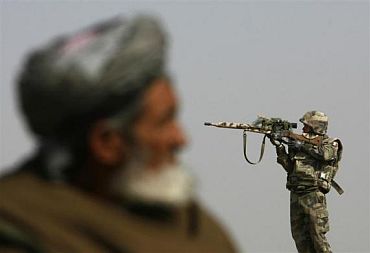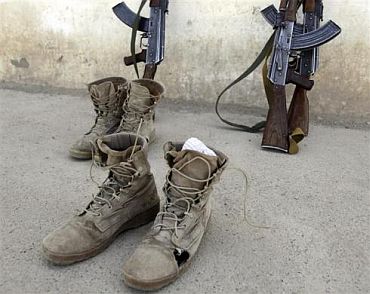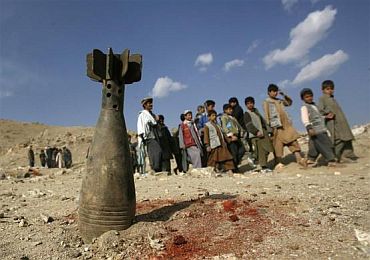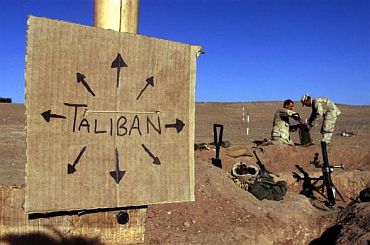
Addressing New Delhi's concerns about peace talks with Taliban, the United States told India that it will not let the rebels enter a power sharing agreement in Afghanistan, according to leaked US cables by Wikileaks.
While the US special envoy for Af-Pak region Richard Holbrooke insisted that India is not his area during a meeting with Foreign Secretary Nirupama Rao in January this year, Rao, accompanied by top Indian diplomats, sought US pressure on Pakistan to break its ties with terrorist groups and to permit Afghanistan's economic links with India to grow.
"During the meeting, Holbrooke said that some of the anxiety stems from confusion between reintegration and reconciliation," the cable said. The special envoy said the reintegration programme is not a political negotiation designed to give Taliban elements a share of power.

"The US cannot be a party to any such arrangement, in his view, because the Taliban is allied with the Al Qaeda and the social programmes of the Taliban are unpalatable," he said. Holbrooke also said the "Taliban leadership appears to have no interest in talking to the international community in Afghanistan."
Rao said "India needs some deliverables on terrorism before it can engage bilaterally with Pakistan".
According to the cable, Rao readily agreed to Holbrooke's request for a briefing on Indian training for Afghan security personnel, emphasising that this engagement is completely transparent.
She supported her argument by noting that India had previously provided a detailed briefing on this at the US-India Defence Policy Group meetings. "We have nothing to hide," she said.

"Holbrooke assured Rao that he is in favour of Indian assistance programmes in Afghanistan and is not influenced by what he hears in Islamabad," the cable said.
Noting that Afghanistan has the potential to prosper as a hub or transit point for energy, agriculture and trade if it could be connected to its natural market in India, Rao said it was unfortunate that Pakistan does not allow this to happen. The foreign secretary asked the US to apply pressure on Pakistan to stop it from supporting the Afghanistan Taliban and to allow Afghanistan to develop trade and commercial links.
"Holbrooke responded that Pakistan views certain Taliban groups, particularly the Quetta Shura, as an insurance policy to protect its strategic interests in Afghanistan and it is not clear that anyone can easily influence Pakistan to turn on these groups, although the US is exerting tremendous pressure," the cable said.
Rao said she was alarmed at this continued Pakistan support for terrorist groups, noting that the Lashkar-e-Tayiba was 'ideologically fused' with both the Quetta Shura and the Haqqani network. As evidence, she pointed to the Haqqani group's 2008 bombing of the Indian embassy in Kabul.

"She was also disturbed at the length to which Pakistan had gone to exclude India from the Istanbul conference on Afghanistan, citing it as an example of unwarranted Pakistani insecurity over Indian intentions in Afghanistan," it said.
Citing the US government's own difficulties in dealing with the Pakistan government, Holbrooke suggested that many people overestimate the US influence in Pakistan.
During the meeting, Rao alleged that Pakistan is clearly trying to 'stir the pot' in Kashmir.
"In her view, Pakistan is trying to deflect attention to its eastern border from the Afghanistan-Pakistan border, where the focus ought to be," the cable said. Rao argued that India has not turned its back to Pakistan but needs some Pakistani progress on terrorism to reengage.
"Holbrooke noted that India and Pakistan working together is obviously in the interests of the region and the international community," the cable added.